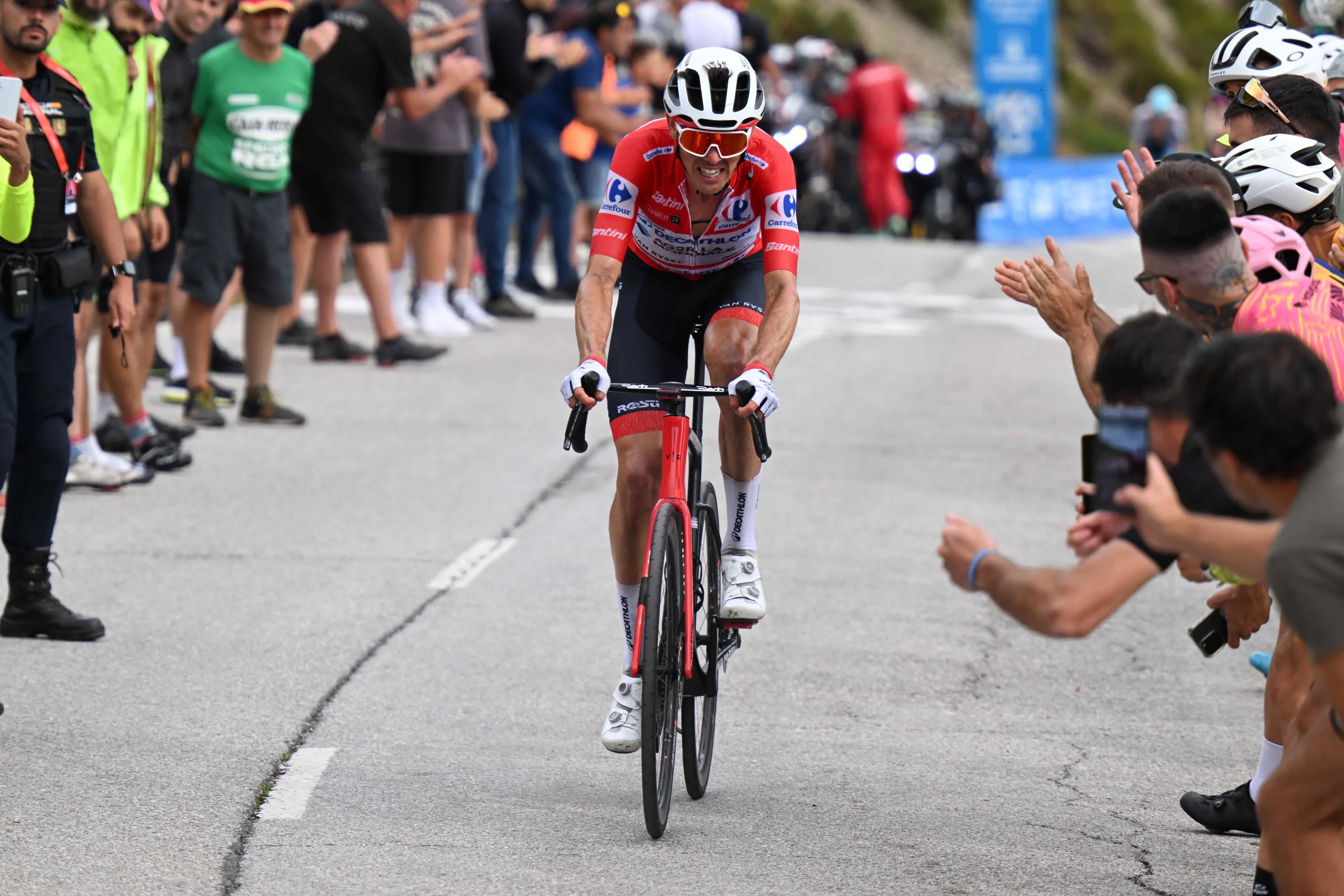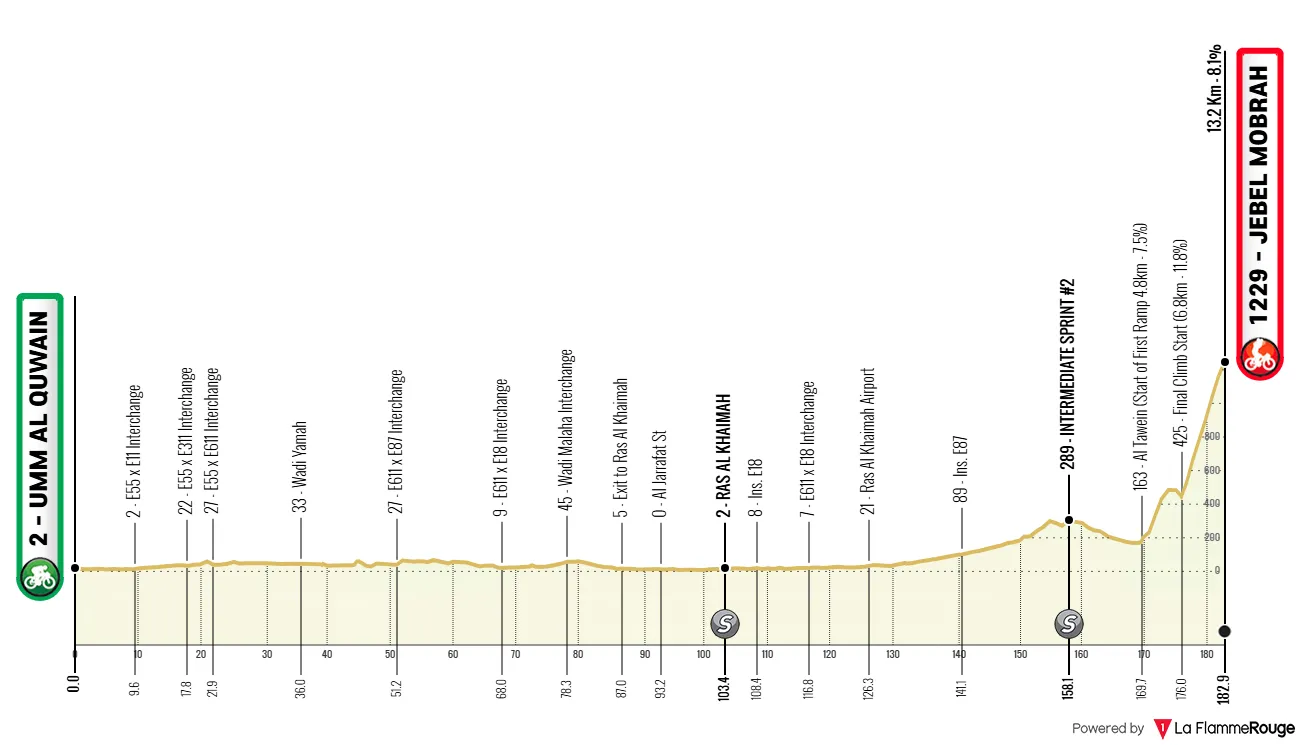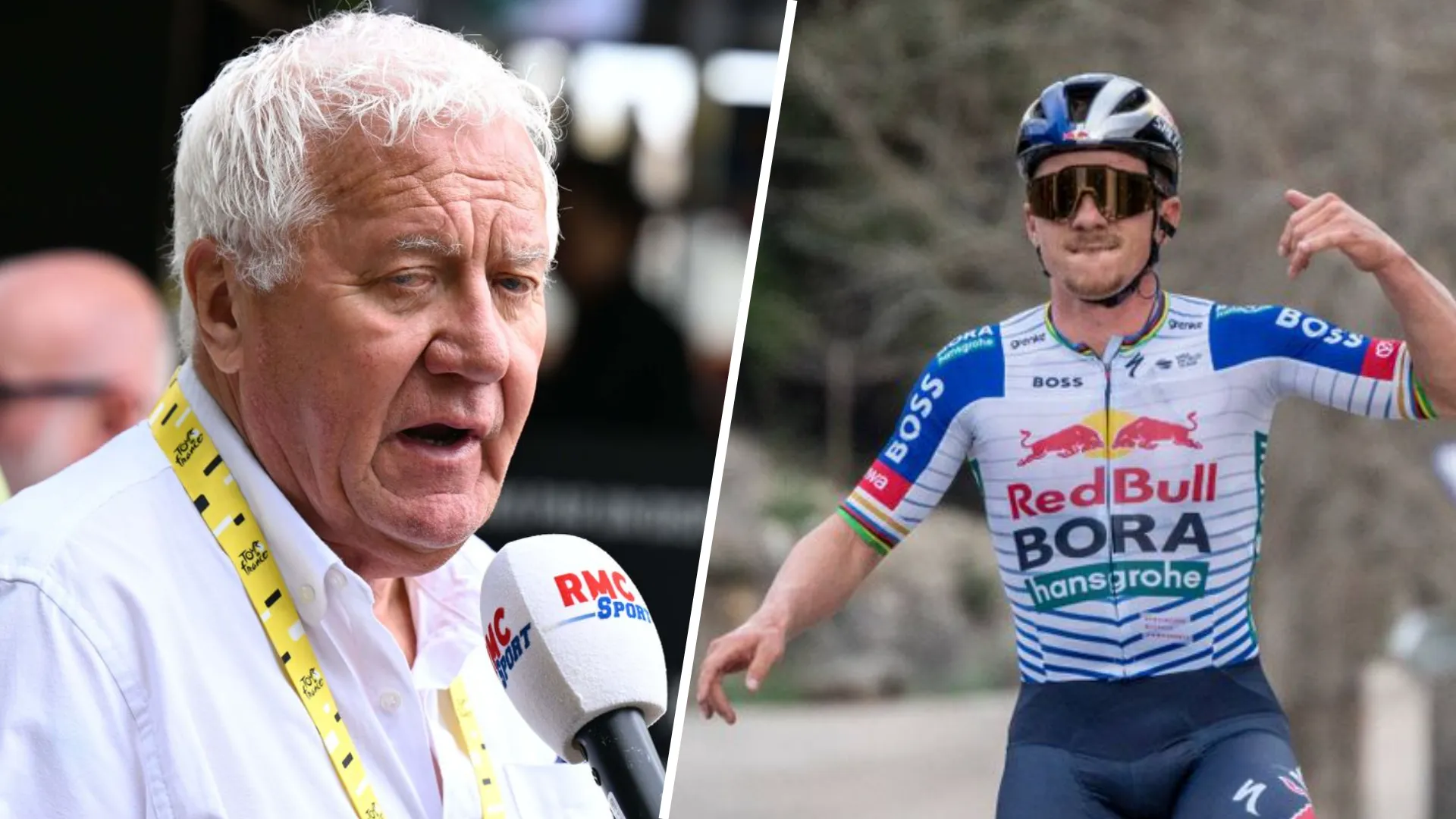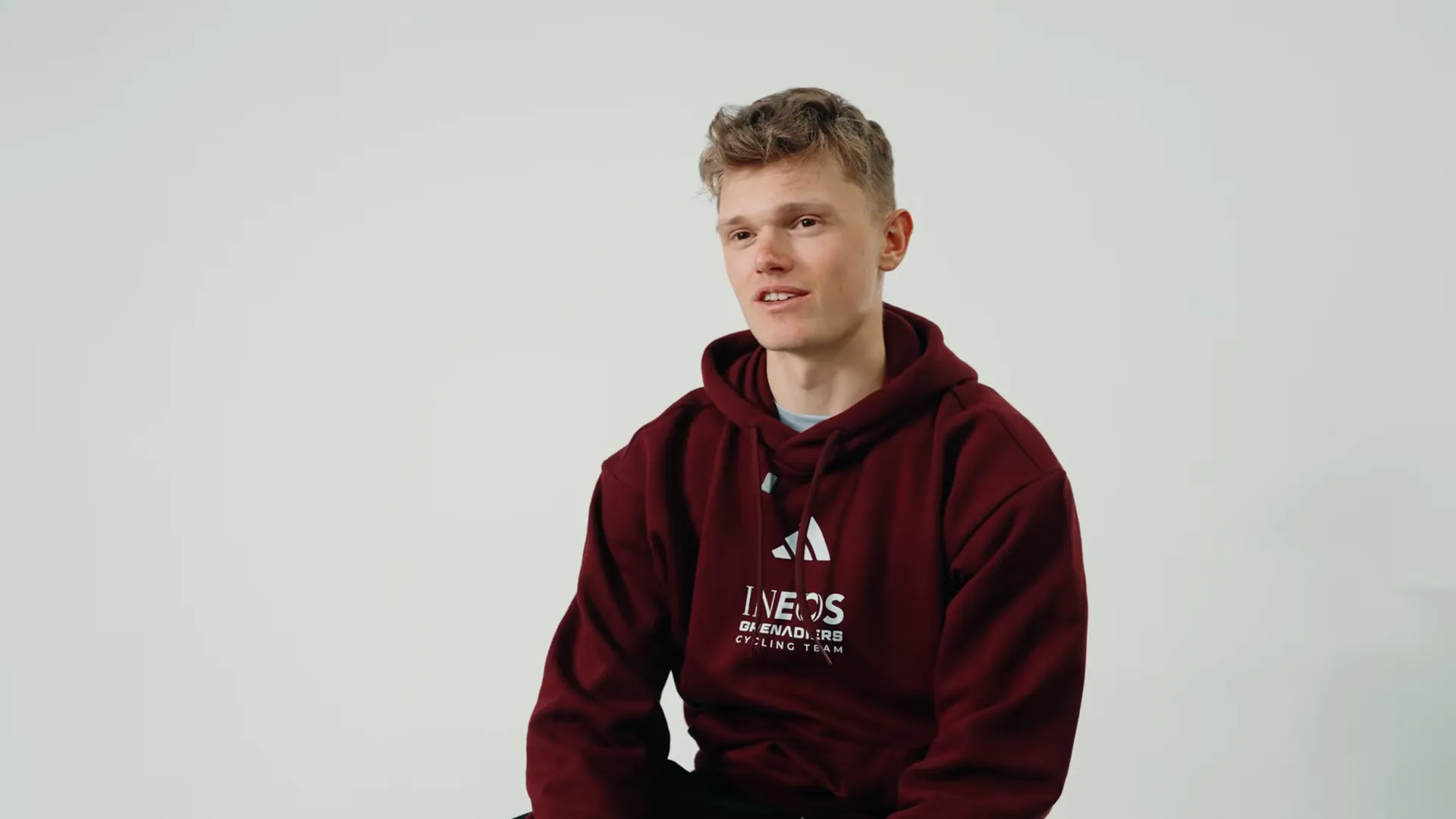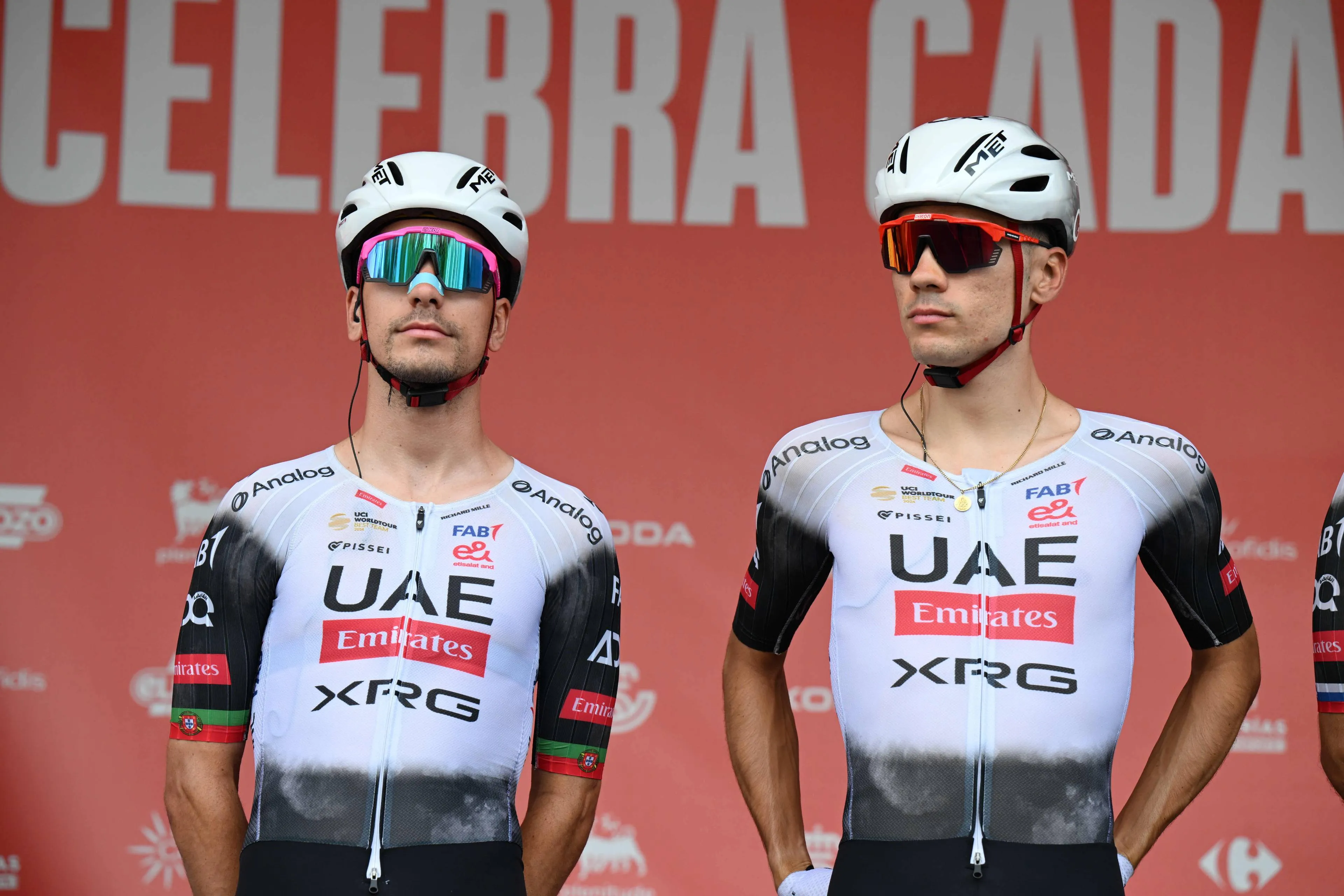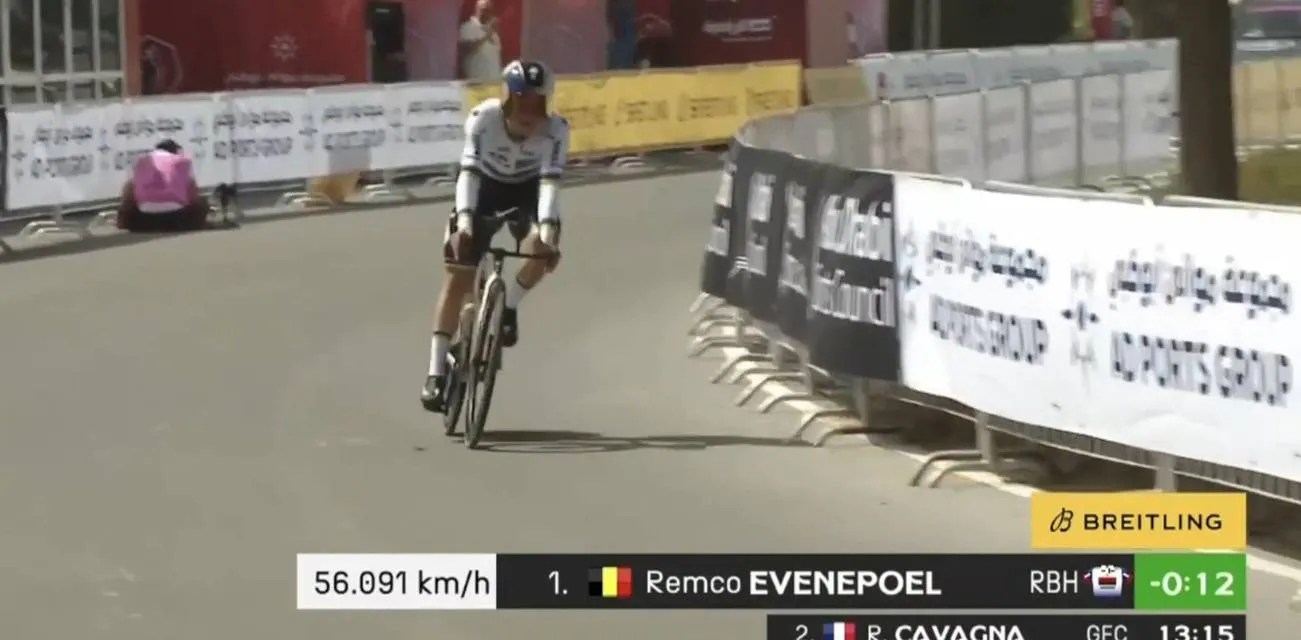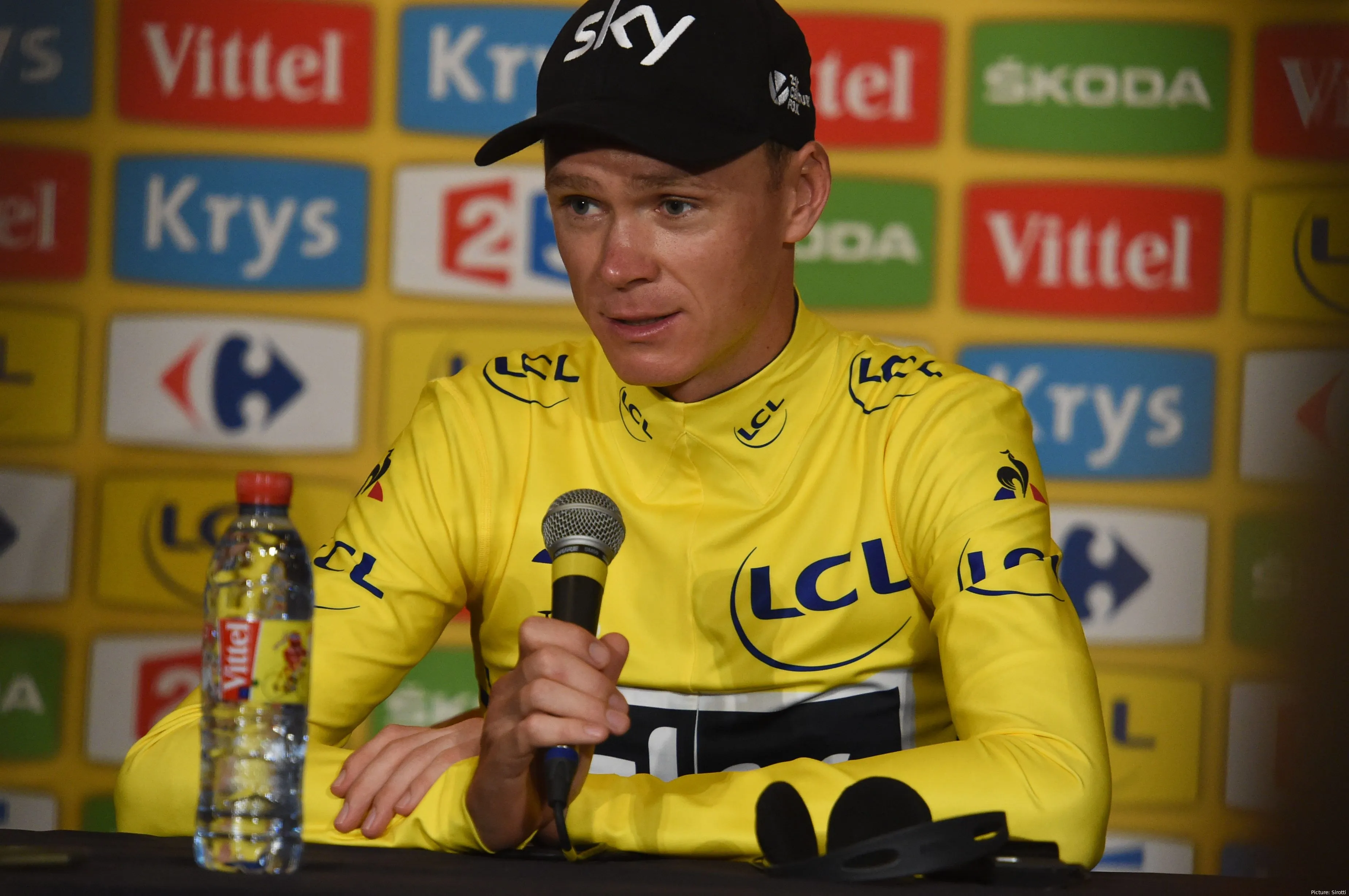
Who is Chris Froome?
Chris Froome is one of the most relevant and successful riders of the 21st century. Froome became the face of the 'Team Sky' years, an era which revolutionized the way of racing Grand Tours in cycling and in which his skillset was perfectly suited to. The best stage-racer of his generation according to many, Froome rode his way into four Tour de France wins, two Vuelta a España wins and one Giro d'italia - making him one of the very few to win all three throughout his career. He has also won almost 50 races as a pro rider, the grand majority at World Tour level.
Name: Christopher Froome
Born: 20 May 1985
Place of birth: Nairobi, Kenya
Turned pro: 2007
Height: 1.86m
Born: 20 May 1985
Place of birth: Nairobi, Kenya
Turned pro: 2007
Height: 1.86m

Chris Froome at the 2017 Tour de France, the last one he won. @Sirotti
Froome's story is quite the unusual one. Froome is the only rider born in Africa to have won the Tour de France, as he was born in Kenya (which he represented in his early cycling years) but has British nationality. The youngest of three brothers, Froome spent much of his childhood in England but also South Africa. He is married to Michelle Froome with whom he has two children with. Froome is a resident of Monaco, like many other Tour de France winners. Froome was the head figure of the famous 'Sky Train' that dominated many Tours in the 2010's, specializing on a type of racing consisting of a very strong collective that paced consistently up the mountains. Combining that type of riding with his beyond-strong time-trialing comparing to his rivals, it has led to a massive palmarès of seven Grand Tour wins. But this didn't come without it's doubts and criticism in what is one of the most interesting careers of the century.
It was still in South Africa that Froome first dabbled in professional cycling back in 2007 with Team Konica Minolta. At the time he weighted 75Kg and had won at under-23 level at the Giro delle Regioni and the Tour of Japan. He had gotten the attention of British Pro Continental team Barloworld who signed him for two seasons back in 2008, where he first made his Tour de France debut. He didn't leave much of a mark, but was on the Top15 of the final Tour's time-trial and looked to specialize in the discipline. In 2009 he rode the Giro d'Italia and another decent season which saw World Tour outfit Team Sky sign him, a move that would prove to be an absolute lifetime investment later on. 2010 was a year without much to show, as was the case with 2011 until the Vuelta a España, the race that changed everything.
Froome started the Vuelta as a domestique for team leader Bradley Wiggins, but on stage 10 Froome - now weighting around 69Kg, which he would keep throughout most of the years - put on a storming time-trial and took over the race lead, surprisingly. He lost it the next day, but his climbing performances saw the team protect him alongside Wiggins. He was still in a secondary role, but this changed on the mythical Alto de l'Angliru on stage 15 where Wiggins dropped and Froome was given freedom to chase the victory. On stage 17 he took his first Grand Tour win, atop Peña Cabarga where he and Juan José Cobo had an absolutely memorable battle on the brutal final kilometer. He finished the race in second place whilst Wiggins was third, but Cobo later accused a positive doping test which meant that Froome was ultimately handed the win.
Read also
Into 2012 he was on a level almost as high as Wiggins. He also showed good form with a fourth place at the Criterium du Dauphiné, but peaked at the right time for the Tour. He won the first summit finish to La Planche des Belles Filles but because he had lost time earlier in the race, Wiggins was the one to take the yellow jersey. Wiggins won both time-trials in the Tour with Froome finishing second to him, and did not crack in the mountains which meant that Sky always protected him and took him to overall victory. Despite glimpses of being stronger than his leader in the mountains, Froome ultimately settled for second in the race. He was later third at the time-trial Olympic Games in London, and also fourth at the Vuelta a España where he was given the lead but was no match for the memorable trio of Alberto Contador, Joaquim Rodríguez and Alejandro Valverde who battle for the overall win.
In 2013 Froome became an absolute leader as Wiggins would lose his capacity as a Grand Tour contender. Froome won the Tour of Oman, the queen stage at Tirreno-Adriatico (where he was second to Vincenzo Nibali), the Critérium International, the Tour de Romandie and Critérium du Dauphiné, exhibing his newly-found explosivity and making him the man to beat at the Tour de France. But the man-to-beat was not beaten, as Froome jumped into the yellow jersey with an astounding ascent to Ax-3 Domaines on stage 8 where he took the win, and then carrying the lead all the way to Paris. He won stages atop Mont Ventoux and the stage 17 time-trial and won the race by over 4 minutes ahead of Nairo Quintana.
2014 was the year of defending what was his, but it didn't turn out the way he hoped for. Froome won the Tour of Oman early in the year and then won the Tour de Romandie as well. He won the first two stages of the Criterium du Dauphiné 2014 in what was a spectacular rivalry with Alberto Contador, but on stage 7 'El Pistolero' got his revenge and took the yellow jersey from him at Finaut-Émossson. However both would be the victims of an all-out raid by other contenders on the final day of the race and Froome would fall out of the Top10. He and Contador were two of the three main favourites to win the Tour de France but both abandoned in the first week, Froome was victim of several crashes on stage 5 (a rainy day in the cobbles) where he suffered hand and wrist fractures.
But Froome would return at the Vuelta a España where he and Contador hashed it out for three weeks. Froome would prove to be the Spaniards' most resistent rival, but he could not take the overall win or any stage win despite his efforts. 2015 would be a fresh start however and he defeated Contador at the Vuelta a Andaluzia right in February, where the two beat each other on the two mountain stages but the Briton managed to win the overall classification. Froome would go on to win the Criterium du Dauphiné alongside the final two stages, a dominant performance that saw him as the main favourite for the Grand Boucle.
He would take the yellow jersey in unlikely circumstances, finishing second at the Mur de Huy on stage 3, losing it the next day but taking it back on stage 7 as yellow Tony Martin crashed out. He won the first mountain stage at La Pierre-Saint-Martin in the same way as 2013 and again held the yellow jersey into Paris due to his consistency and incredibly strong Team Sky. He had an incredibly strong Nairo Quintana challenging him and putting Froome in the absolute limit on the final week, but he had enough of a gap to win the overall classification over the Colombian. Froome aimed to win the Vuelta a España later on, but crashed on stage 10 suffering a foot fracture and having to abandon later. His performances this year saw Team Sky release some of his physiological data in the midst of intense scrutiny and doping accusations.
2016 would be another prime year, winning the Herald Sun Tour early in the year, then the queen stage of the Tour de Romandie late in the spring and once again capturing the Criterium du Dauphiné before the Tour de France. This was his most comfortable win, as Froome won in Bagnères-de-Luchon on stage 8 with a downhill attack and took over the race lead. Thriving in the time-trials, holding his own in the mountains, and gaining time through downhill and echelon attacks - as happened on stage 11 alongside Peter Sagan - Froome secured his third Tour de France, adding two more stage wins to his name. He was second at the Olympic Games' time-trial, and then once again second at the Vuelta a España where he won two stages but was defeated by Nairo Quintana - who won the race based on a massive raid on stage 16 together with Alberto Contador that had him win several minutes despite leading the race.
2017 would see Froome having a very modest start to the season, as he fully focused on his preparation for the Tour de France. He lacked big results until the Dauphiné where he was fourth, but he peaked perfectly for the Tour. He took the yellow jersey on stage 5 at La Planche des Belles Filles and then won his fourth Tour, managing his rivals in the mountains despite not having many time-trial kilometers to make the difference. But this time around Froome would finally race and win the Vuelta a España with no case such as Cobo's on the way. Froome surged to the race lead on stage 3 right away in Andorra la Vella, won stage 9 to Cumbre del Sol and then again the time-trial on stage 16, and held off Vincenzo Nibali to succeed in the Vuelta-Tour double. During that Vuelta, Froome tested above the allowed limits for Salbutamol, an asthma medicine. This led to an almost year-long investigation which was ultimately closed as Team Sky had sufficient evidence that the rider had the permission to do this despite his illness - but the case was a big strike into his reputation.
Froome would make his Giro d'Italia return in 2018 in an attempt to conclude the triple. He had a modest start to the year and the Giro was no exception, as he failed to make the difference in the first week, and only on stage 14 did he show his true legs, winning on the brutal Monte Zoncolan. However he was nowhere near the lead of Simon Yates and time-trial specialist Tom Dumoulin, and heading into stage 19 hopes of winning the pink jersey were low. But on that day Froome went all-or-nothing, with Sky pulling the pace very hard for the first half of the day, cracking pink jersey Yates completely, and then Froome launched an attack with 80 kilometers to go on the Colle Delle Finèstre. Froome won the stage with three minutes of advantage over his main rivals and jumped into the race lead which he secured two days later in Rome.
He would race the Tour de France afterwards, but this time around he finished third as he played a key co-leadership role alongside teammate Geraint Thomas who won the overall classification. Froome himself did not have the same legs of before but could celebrate the collective win. 2019 started off very modestly but in June, a crash changed his whole career.
Froome crashed whilst doing a recon of the time-trial at the Criterium du Dauphiné, hitting a house wall after losing control of the bike during a moment where he attempted to put on a jacket. He had a fractured femur, elbow and ribs which ended his season. But Froome would never be the same, racing in 2020 at a level that was nowhere near what he had shown in the past and not having his contract renewed with the British team. He signed with Israel Start-Up Nation in 2021, a millionaire contract for a new World Tour team but has since never been close to the level he shown in the 2010's. He had a glimpse of a strong performance on the Alpe d'Huez stage at the 2022 Tour de France where he was in the breakaway and finished third, but throughout most of his contract he was rather absent from the action.
Throughout the 2023, 2024 and 2025 seasons Froome was rather absent from the peloton, competing but in a domestique role for Israel - Premier Tech until the end of his contract. His last race was at the Tour de Pologne, before he suffered a serious training accident in which he suffered five fractured ribs, a vertebra and a punctured lung.
claps 0visitors 0
Just in
Popular news
Latest comments
- No matter what people say - I'll watch it. And I bet all the complainers will do it too....averagecyclist18-02-2026
- Exactly what I'm thinking about it. Moreover Van Glis had a lot of time to rethink his situation but decided to stay where he was.averagecyclist18-02-2026
- Soler must be pissed at that
 leedorney18-02-2026
leedorney18-02-2026 - Completly agree, Jan was in front of van gils, following Pidcock wheel, it was Van gils who tried to force his way through Jan and the barriers. Are they blaming Jan because he belongs to the richest team that win a lot?
 maria2024202418-02-2026
maria2024202418-02-2026 - Clickbait title, not reality-based. Yawn.itsent18-02-2026
- lame, but probably correctantipodeanpedalfan18-02-2026
- Van Gils rode like wanted to get crashed or way too over confident that he was going to overtake Jan before getting pinched. It was obvious were Jan was going/had to go and MVG had the whole road to give an inch so he would have a chance to overtake on the rightjad2918-02-2026
- Double book this showing with the Melania documentary and you might get 100 people to see it...total !frieders318-02-2026
- Simple solution...stay off the barriers since you might get closed out ! Christen's sprint was legal as he was trying to get into the slipstream of Pidcock.frieders318-02-2026
- I believe Remco now understands that he will have issues reaching the top step as long as Tadej is in the Tour, whiles he's a year junior to Tadej he has had his upper body rebuilt twice now from crashes over the last few years. I think he has a chance to win the Tour in a few more seasons, you can only prepare yourself as best you can and try. He said he needs to race some more one week stage races, he should, he can probably win them all. I also believe Remco should aim for another Vuelta if he comes out of the Tour in good form and maybe he should think about the Giro again for next season. This is potentially Tadej's fifth Tour win coming up this year, no one is going to derail that unless he falls off the bike or gets really sick.awp17-02-2026
Loading
Write a comment
